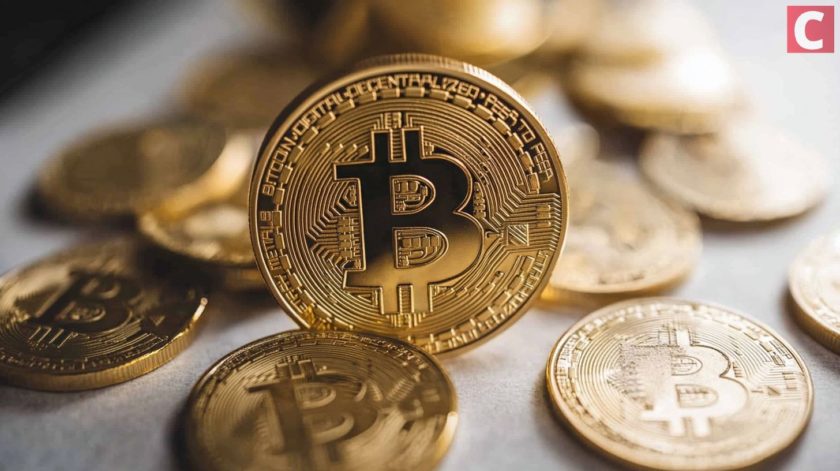Every Friday, Law Decoded delivers analysis on the week’s critical stories in the realms of policy, regulation and law.
Editor’s note
The concept of monopoly will reign in today’s Law Decoded. As a fundamental principle, blockchain technology is about distributing both inputs and outputs of information securely. In its still very young lifecycle, the technology has proven to have boundless applications on the basis of this fairly simple principle.
A secondary principle is decentralization, and in this way, blockchain technology seems inherently opposed to monopolies. The big challenge of Bitcoin’s white paper was finding a way to move value across parties without getting lost in either that proverbial valley between two Byzantine generals OR the trap of a third party. That’s not to say that every firm working in blockchain is morally so grounded as to turn down the opportunity to monopolize its market. But the tech is promising for addressing a huge range of concentrated power — especially in a digitizing world.
This week saw antitrust conflict between paeons of big tech and government. While those encounters were hostile, they will likely not result in any major damage to anyone’s bottom line. It also saw some new consequences for misuse of monopolized monetary power, which is a system that is also unlikely to change soon. The great thing about a monopoly, once you have it, is that it’s really hard for someone else to take it from you. But these are clusters of power that seem pretty obvious as places you’d look to decentralize.
Kollen Post, Policy Editor, @the_postman_
Governments take Big Tech to task for antitrust practices
CEOs for the four horsemen of U.S. tech — Apple, Amazon, Google and Facebook — appeared virtually before Congress on Wednesday to face accusations of functionally acting as monopolies.
The Thursday release of Q2 earnings reports showing rising revenues for each of the firms except Google did nothing to gain these firms sympathy. This was despite efforts during the hearings by the CEOs to depict their companies and their individual biographies as the American dream come true.
The past half-decade has ravaged the public image of tech in the United States. Increasingly dystopian revelations of data-gathering practices and brutal campaigns to squash competition have led to a widespread backlash against Silicon Valley. The role of social media in the 2016 election and subsequent waves of disinformation (including COVID-19) has also ended whatever honeymoon period firms like Facebook and Twitter had enjoyed.
Meanwhile, China, whose digital payments providers are widely praised as ahead of those in use in the U.S., looks set to crack down on those providers based on similar antitrust principles. For China, however, that might be at least in part to clear the way for a broad launch of a digital yuan.
Many of these tech giants are entrenched enough that they may be getting too big to fail. It is undeniable that they provide services that have changed our way of life. As Mark Zuckerberg pointed out during Facebook’s investor call last night, had the COVID-19 pandemic happened two decades ago, this shift to working remotely wouldn’t have been possible, and many more people would be dying. However, recent events should be getting a lot of people thinking about whether these giant firms are the best we can do and whether we might be better served looking at decentralized alternatives.
…and maybe central bank monopolies next?
Also in the U.S., the Federal Reserve’s printer continues to go brrr, beating out the country’s total money printing over the first two centuries of its existence in the space of a month. The dollar is, for the first time during this pandemic, looking to be on the ropes.
Quantitative easing — the formal term for the Fed’s use of inflation as a source of funds at the expense of all dollars already out there — is a recurring villain in Bitcoin narratives. The idea is that it has to result in a monetary collapse eventually.
The extraordinary expenditures in the U.S. over recent months have seen the dollar stubbornly resisting this narrative, but according to recent analysis, that’s changing. Early in the pandemic, global financial institutions and governments scrambled to stock up on dollars, buoying demand and value despite outlays. But this week, as Congress considers another huge stimulus bill, the dollar dipped to its lowest level since May 2018.
We’re not witnessing a collapse in the monetary system, but certainly, a strain that, if it continues, will call into question whether the Fed really knows what it’s doing. At the same time, the head of the country’s major banking regulator is calling for blockchain-based challengers to the Fed’s central role in payments.
All five of the world’s main reserve currencies are now looking to digitize
As China and the U.S. dominate headlines focusing on potential central bank digital currencies, and different European Union banks are launching their own trials, the remaining two of the five major currencies in the world have taken major steps indicating the same interest.
The Bank of Japan announced that it had appointed its top economist to a team doing research on the digital yen. The Bank of England, meanwhile, tapped Accenture to update technology for the U.K.’s payments system — not explicitly referring to a CBDC, but Accenture is deeply involved in the development of CBDCs around the world, including the digital dollar.
The dollar, the euro, the yen, the pound sterling and, as of 2016, the yuan form the basis for the International Monetary Fund’s Special Drawing Rights and form the backbone of global reserves. None of the five are transacting as CBDCs yet, but it’s clear that they are all worried about being left out. CBDC technology is not yet standard, but at the very least, research into it has become necessary to those currencies looking to maintain their prestige.
Further reads
The American Enterprise Institute’s visiting crypto expert, Jim Harper, talks digital dollars and new payments systems.
Coin Center, a leader in lobbying and research on decentralized networks, has updated its educational resources.
Kelman Law runs down the basics of paying taxes on both earnings in cryptocurrencies and capital gains on trading in the United States.




